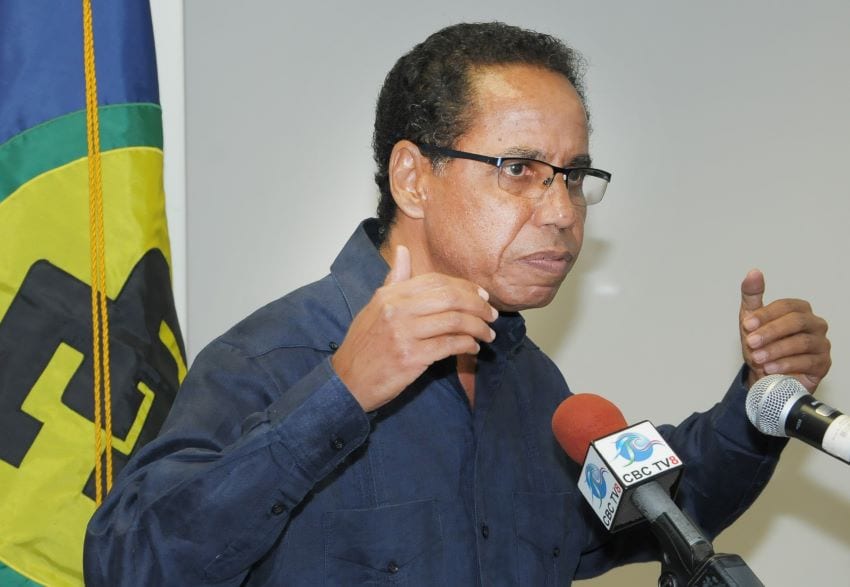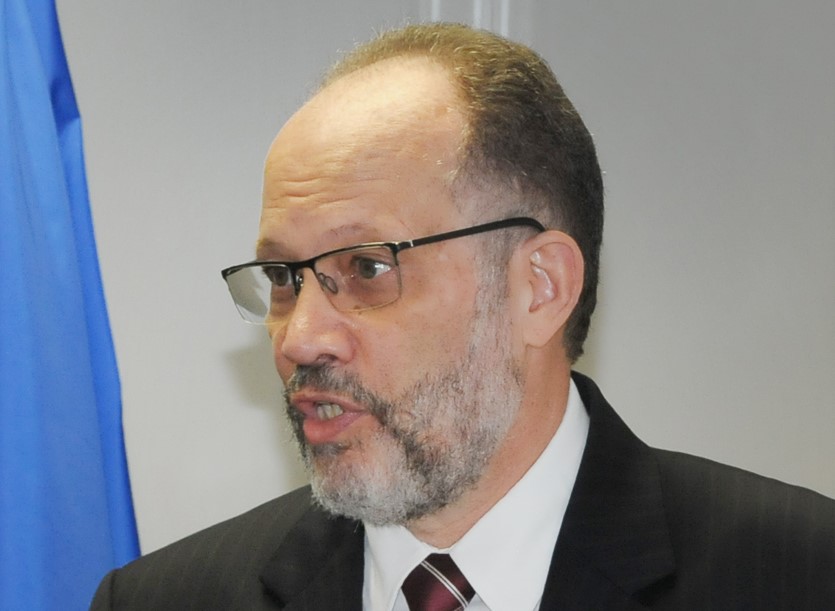
If the CSME is to achieve socio-economic development, then more institutions in the region need to be part of the consultative process, and to better inform the people of the Caribbean about their role.
This observation was made by Barbados’ Ambassador to CARICOM, David Comissiong, as he delivered remarks at a Regional Stakeholders’ Consultation on the CARICOM Single Market and Economy (CSME), under the theme What is in it for Me? Today, at CXC Headquarters, Pine Plantation Road, St. Michael.
Ambassador Comissiong told the stakeholders: “We have 18 institutions, [and] seven associate institutions. If they all made a much bigger effort to communicate with the Caribbean people, to bring to the consciousness of the Caribbean people that they exist and that they are doing good work on behalf of the people of the Caribbean, we will develop an ideology of regionalism in our Caribbean community.”
He told the stakeholders that included labour, the private sector and civil society, that they had an obligation to the people of the region to “make an effort to make the CSME work”.
“People say they want consultation, but consultation calls for work. It calls for attending meetings, not finding excuses not to be there,” he surmised.
Ambassador Comissiong also called for better planning at the level of the councils of CARICOM, including the Council for Trade and Economic Development (COTED), adding that the committee of ambassadors still needed to be solidified “to really make it as effective as it should be”.
“It seems to me that we need to do some winnowing down of these councils’ meetings. We need to find ways of dealing with routine matters outside of council meetings, so that the time could be reserved for really important issues and decisions that ministers need to make. Also, the councils are really part of a very important planning mechanism. We have to have planning mechanisms in CARICOM, but what seems to have been lacking in these planning mechanisms in the past is the involvement and presence of the private sector, labour, civil society and youth,” he stated.
He said that a more concerted effort was now being made to bring these entities on board not only at the Heads of Government Conference level, but also at the levels of the councils, so that they could become part of the planning and implementation process “going forward”.

Meanwhile, CARICOM Secretary General, Ambassador Irwin LaRocque, indicated that the CSME remained the best platform for achieving sustainable economic growth and development for member states, as well as for international competitiveness and economic resilience for the region.
Admitting that although a lot of technical work was taking place, implementation was still a problem, with regular inputs needed from key stakeholders.
“We must address the operations of the CSME and what needs to be done in order to make them more effective. These consultations are expected to improve the decision-making process in the various Organs of the Community. The Organs must meet more regularly,” he stated.
In her remarks, Coordinator for Regional Development at the Caribbean Development Bank, Andrea Power, described the annual consultation as an important monitoring mechanism that gave persons the opportunity to formally and publicly report on progress made towards the implementation of the CSME.
She said: “The urgency with which we need to accelerate the completion of the CSME cannot be overstated. The external trading environment is becoming increasingly difficult to navigate, as multilateralism appears to be under threat, with our major trading partners looking increasingly inward. We, therefore, need to make this expanded marketplace that the CSME promises a lived reality, if our private sector is to thrive and generate sustainable jobs, which in turn can contribute to the reduction of poverty.”
The Regional Stakeholders’ Consultation was coordinated by the CARICOM Secretariat and the Prime Minister’s Office, with funding from the Caribbean Development Bank.
It was designed to get feedback from stakeholders about the CSME as a process that encompasses sectoral and human resource development.
